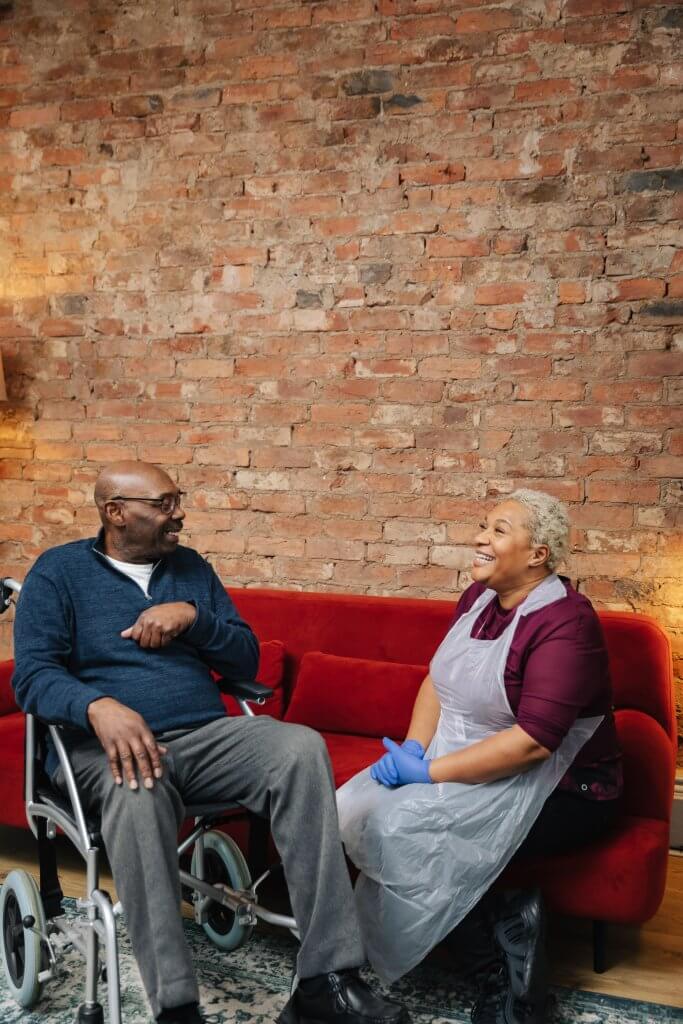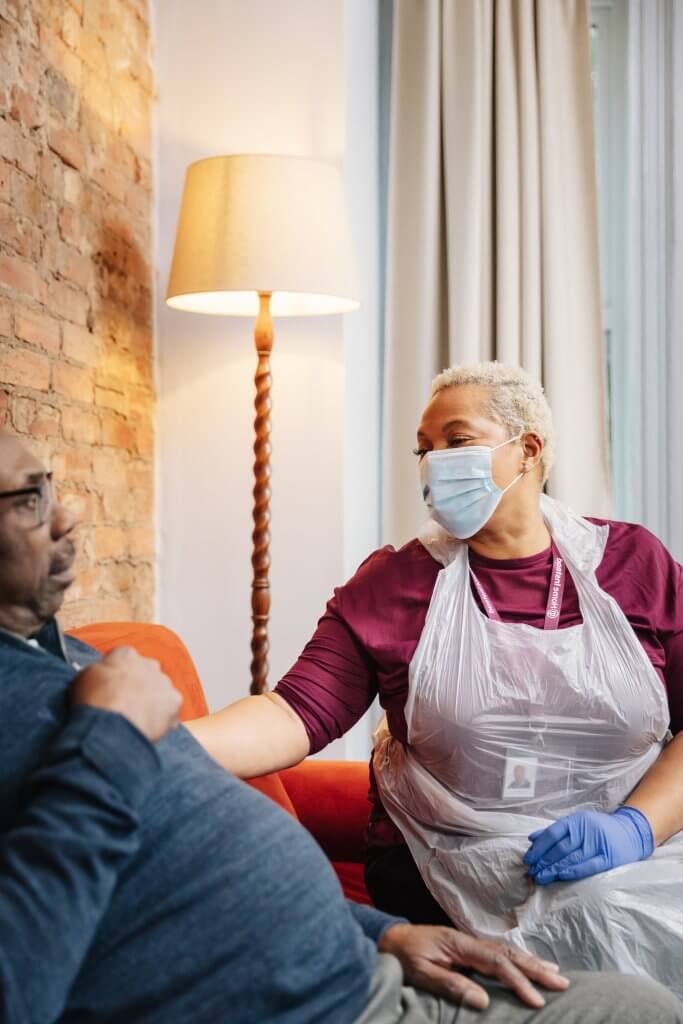Epilepsy Care at Home
We understand that epilepsy can affect you or your loved ones in different ways, so we tailor our care to your needs with a range of flexible services delivered within your home.
Managing your epilepsy at home
We know that epilepsy affects people in different ways depending on the frequency and severity of seizures. Our Care Professionals provide a range of practical and personal support options to meet your individual needs, such as hourly care, longer hours, or even live-in care to help you manage your epilepsy at home.

Truly holistic care
Home Instead’s Care Professionals are trained to the highest clinical standards and will work with your own doctors and health teams to ensure you receive the best possible care. Our services are flexible and include companionship, home help, personal care and specialist care. You might only want a few hours or a full day of support. Whatever you need, we will match you with a Care Professional who will become a trusted companion, enabling you to continue living a fulfilled and active life.
- Enhance your independence and support you within your community.
- Potentially reduce health complications and hospital admissions.
- Assist with your epilepsy treatment and management plan.
- Work with you and your health care team when reviewing your care needs.

We've helped thousands of families to stay safe, comfortable and happy at home. Whatever situation you're facing, or whatever the question is, Home Instead is here to help.
Are you in need of a little guidance right away?
03300 583450Are you in need of a little guidance right away?
03300 583450Let's have a chat to
see how we can help
What is epilepsy?
Epilepsy is a common neurological condition that temporarily affects the electrical activity within the brain when electrical signals are interrupted or build up, which then causes seizures. Around 1 in 100 people have epilepsy, and it can happen at any age, though more commonly starts in either childhood or in people over 60.
Seizures can present in various ways which impact a person’s daily life, such as staring spells, stiff muscles, temporary confusion, collapsing, or uncontrollable jerking of the arms and legs. There are many different types of epilepsy, and over 40 different types of seizure, not all of which present physically. It is often a lifelong condition, but for many their seizures are manageable with treatment.

What is epilepsy care?
Epilepsy care may involve supporting you or your loved one in several different areas of day-to-day tasks, helping to safeguard your home, assisting with medication administration or the use of treatments such as vagus nerve stimulation (VNS), and helping with other seizure management methods. Your care will be administered following a bespoke care plan provided by your clinical team.

The benefits of epilepsy care
Our Care Professionals are fully trained and assessed to manage your epilepsy care needs. Having a professional available to you means you receive compassion when you feel frightened or overwhelmed, as well as medical support that can reduce the number of possible complications and the need for hospital admissions.

Why choose epilepsy care at home?
Epilepsy care and support with Home Instead allows you to maintain your independence, routine, and lifestyle so you can live your best life at home. Home Instead works with you to match your Care Professional to your interests and hobbies so that you can build a trusting relationship with them. We also liaise with you and your clinical team to guarantee the best care is delivered to the highest standard, ensuring a fully bespoke and tailored care plan is provided. Care is carried out when you need it, not when it suits others.

Advice & Support

Pre-Bereavement Grief
Discover more

End of life care at home
Discover more

Looking for Respite Care? Look no further than the home
Discover more

Why getting Respite Care is the trick to being a good family caregiver
Discover more

New Dementia Training
Discover more

Making communities dementia friendly
Discover more
It’s important to note that symptoms can vary across different people depending on their exact condition. Common symptoms can include uncontrollable jerking and shaking (known as a ‘fit’), becoming stiff, collapsing, experiencing unusual smells or tastes, and getting a tingling feeling in your arms or legs.
Yes, there will be things you can’t do anymore, though you may be able to continue some activities once your seizures are under control. You will need to be careful with any activity that means you interact with water, sharp objects, and heights, as well as some electrical equipment. You may need some support from a carer to assist with or carry out any tasks that you are unable to do safely.
Due to epilepsy symptoms being different for each person, care and support can vary greatly. Many people will not require additional care to live independent lives, while others may need a lot of care, some or all of the time. Whether you have seizures frequently or not, you will likely need care after one. Care at home can cover medical tasks, emotional support, or help with day-to-day chores around the home to allow you to live your life as normal.
There is no outright cure for epilepsy yet, but medications and surgery can be utilised to help reduce the impact on your daily life. Anti-epileptic drugs (AEDs) have varied results – some people with epilepsy can become seizure free, while others have a decrease in their seizures. If your care needs to change as treatment progresses, Home Instead will be with you at every stage to assure you have the right support.







